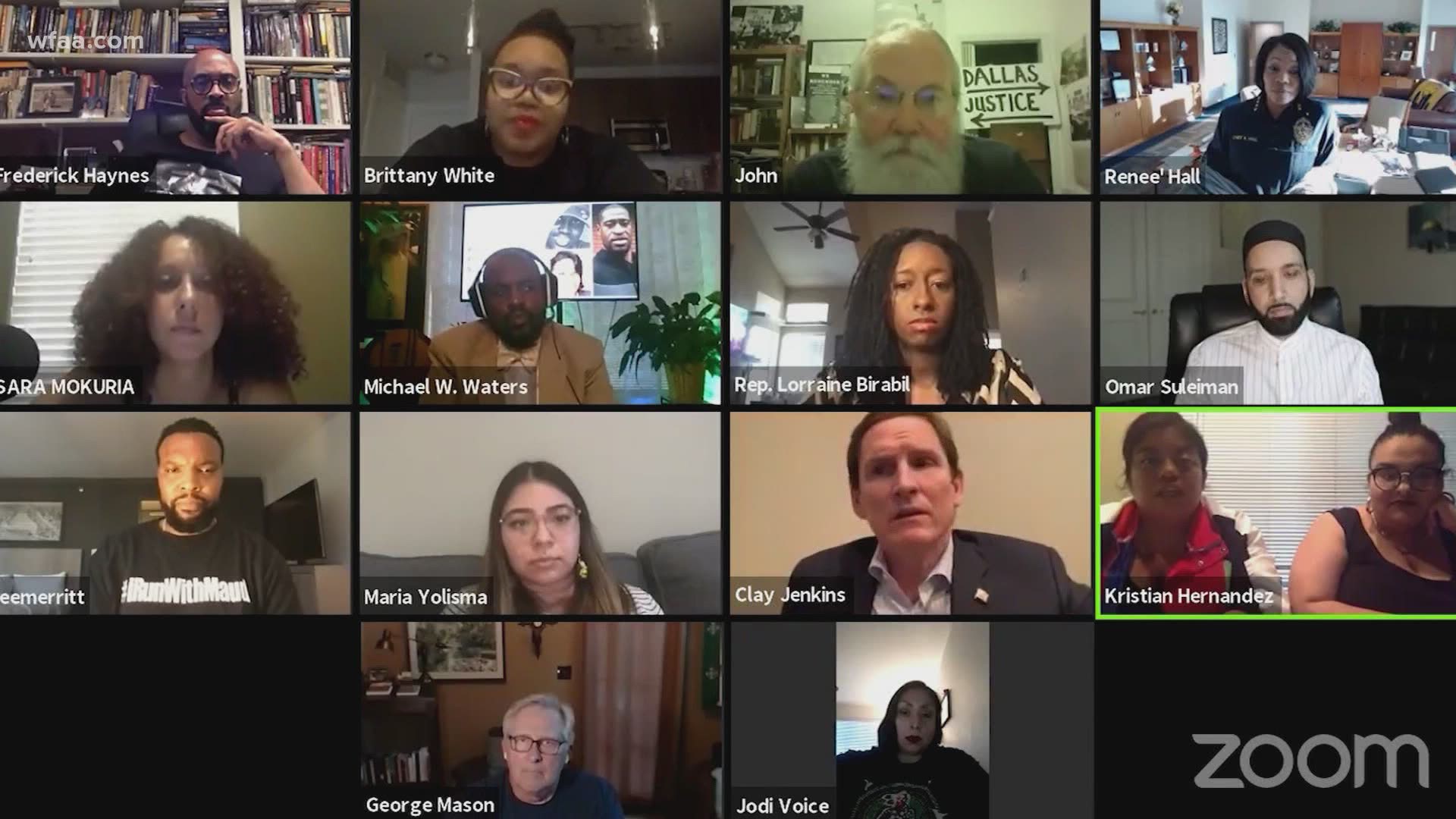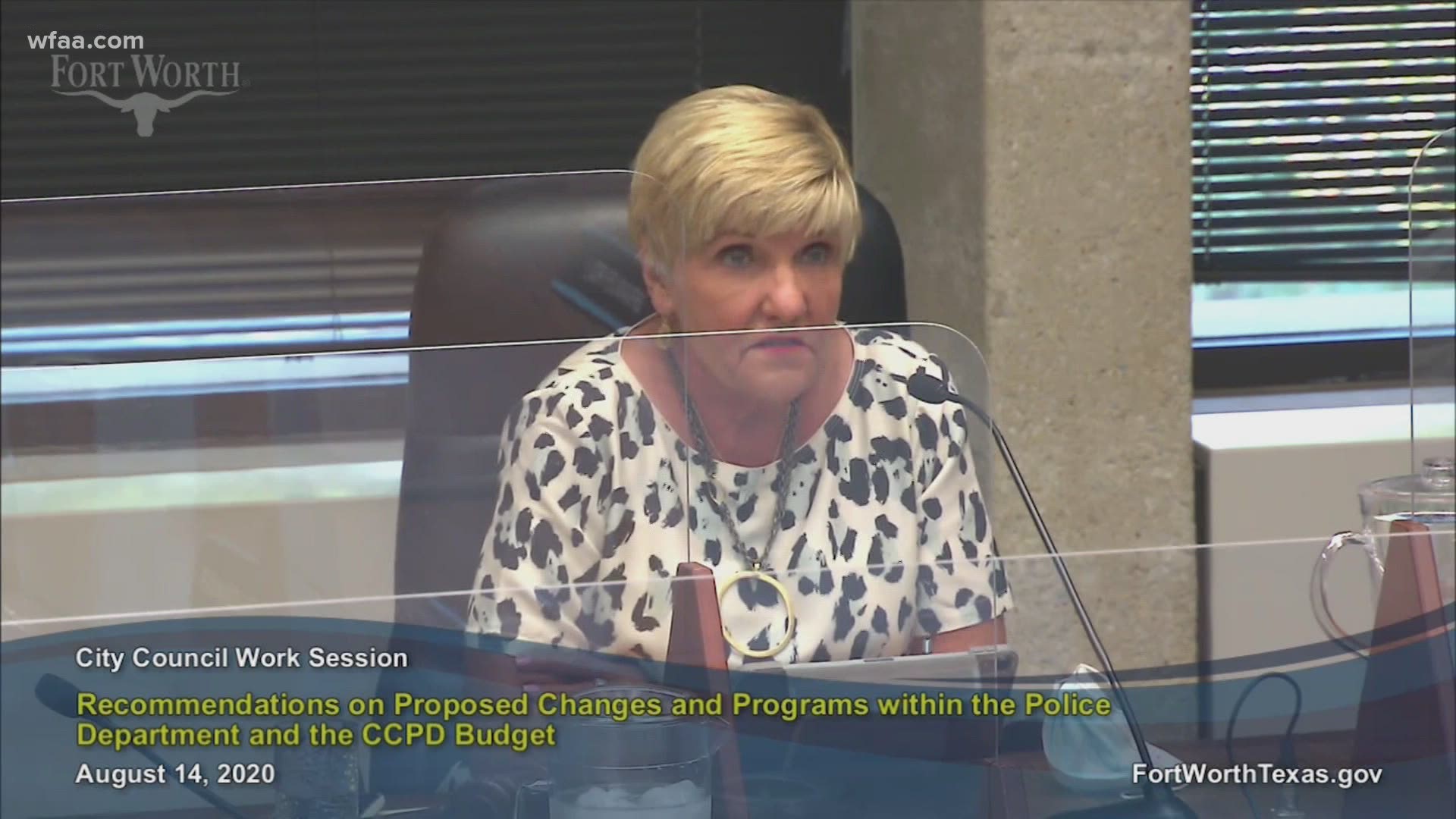DALLAS — Updated at 9:44 p.m. Tuesday with more information about the report.
Protesters continue hitting the streets across North Texas and across the country to speak out about equality and police brutality.
A Dallas County task force is releasing its final report in hopes of advancing social justice and police reforms.
Dallas County Judge Clay Jenkins, who is a part of the task force, says they will ask the Commissioners Court of Dallas to invest $5 million into community-based programs in early September.
”We’ve got to change what’s happening in this country. It’s happening far too often that unarmed Black men and women are being killed by the police,” Jenkins said.
City managers from at least six municipalities in Dallas are also part of the task force.
The task force published its list of 10 Directions for Public Safety and Positive Community Change on Monday.
The report includes witness testimony from experts and residents who gave perspective on a variety of social and community issues including incarceration, poverty, and mental health matters.
The first-hand witness accounts accompanied a list of 10 recommendations the working group developed in June.
Among its recommendations, the group suggested the Dallas Police Department not be first responders for mental health calls, unless a firearm is involved. It’s also asking the City of Dallas and Dallas County to increase investment in alternatives to police response.
”This is not de-funding the police,” Jenkins explained. “This is investing in the community. This is hiring lawyers who are going to be representing people who are about to be evicted. It’s getting mental health professionals as opposed to police to answer those calls for mental health.”
The group is also recommending Dallas police and the Dallas County Sheriff’s Department adopt specific policies restricting use of deadly force, firing officers at the center of multiple excessive force complaints, and taking steps to help stop the spread of COVID-19 in the county jail, among other issues.
Jenkins began meeting with a variety of faith and city leaders, activists, and other residents after the killing of George Floyd in Minneapolis.
”People are out in the streets because they don’t have a seat at the table,” explained Brittany White of Faith in Action, during one of the group’s virtual meetings.
The working group’s goal is focused on pushing investment into changing the relationships with police and improving the community.
"Ultimately, police are always going to have power over our communities. If we’re talking about violence --poverty is violence, being unhoused is violence. Particularly during a pandemic.," Kristian Hernandez of Our City Our Future said.
Read more about the 10 Directions for Public Safety and Positive Community Change in the PDF below.


